
views
X
Research source
VK, First Aid Manual, p. 180, (2006), ISBN 9-781405-315739
A concussion is the most common type of head injury. A concussion can result from a car crash, a sports injury, a fall, or a violent shake to the head or upper body.[2]
X
Research source
While most concussions are a temporary disturbance that don't leave lasting damage, it can lead to associated serious problems if not treated promptly and effectively.[3]
X
Research source
Determining If a Person Has a Concussion

Assess the victim. Examine the wound and look carefully at the victim. Check to see if the victim has a bleeding head wound. Concussions might not bleed on the surface, but under the scalp, creating a "goose egg" or a hematoma (a large bruise). Visible external injuries are not always a good way to tell if someone has a concussion since some very minor scalp wounds bleed profusely, while some less visible impact injuries can cause major brain impairment. Physical symptoms to look for include signs of basilar skull fracture, Battle’s sign (a swollen bruised area that appears several days after a skull fracture because blood has leaked into the area behind the ear), raccoon eyes, and rhinorrhea (leakage of cerebrospinal fluid).

Check for physical symptoms. Mild and severe concussions can result in many physical symptoms. Look for any of the following symptoms: Loss of consciousness. Severe headache. Light sensitivity. Double or blurred vision. Seeing "stars", spots or other visual anomalies. Loss of coordination and balance. Vertigo. Numbness, tingling, or weakness in legs and arms. Nausea and vomiting. Amnesia. Obvious confusion.

Check for cognitive symptoms. Since a concussion is an ailment of the brain, concussions often disrupt brain function. These disruptions include: Unusual irritability or excitability. Disinterest or difficulties with concentration, logic, and memory. Mood swings or outbursts of inappropriate emotions and tearfulness. Drowsiness or lethargy.
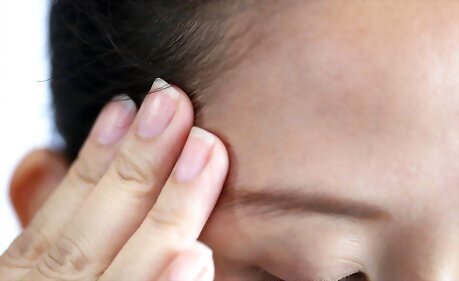
Assess consciousness. When checking for a concussion, it is important to know whether or not the victim is conscious and know his or her level of cognitive function. To check the consciousness of the victim, try the AVPU code: A - Is the victim alert? - Does the victim watch you with their eyes? Does he answer your questions? Does he respond to normal environmental stimuli? V - Does the victim respond to voice? - Does the victim respond when spoken to, even if the response is small and not completely alert? Does he need to be yelled at to respond? A victim can respond to verbal commands and not be alert. A response of "Huh?" when you speak to them means they are verbally responsive, yet not alert. P - Does the victim respond to pain or touch? - Pinch skin to see if there is movement or if the victim opens his eyes. Another technique is to pinch or poke the nail bed. Be careful when doing this; you do not want to cause unnecessary harm to the victim. You are simply trying to get a physical response from him. U - Is the victim unresponsive to anything attempted?

Watch the victim afterwards. Most concussion symptoms appear within minutes of the injury. Others appear hours later. Some symptoms can change days later. Keep a watch on the victim and call a doctor if symptoms worsen or change.
Treating a Mild Concussion

Apply ice. To reduce swelling with a minor injury, apply an ice pack to the affected area. Apply ice every two to four hours, for 20-30 minute increments. Do not apply ice directly to the skin. Wrap it in a cloth or plastic. If ice is not available, use a bag of frozen vegetables. Do not apply pressure to any head trauma wound as this could push bone splinters into the brain.

Take over the counter pain medicine. To treat head pain at home, take acetaminophen (Tylenol). Do not take ibuprofen or aspirin because that could make bruising or bleeding worse.

Keep focused. If the victim is conscious, ask questions continually. This serves two purposes: to assess the degree of the victim's impairment, and to keep the victim awake. Continuing to ask questions can alert you to changes in the victim's cognitive state if the victim fails to answer a question they could answer before. If the cognitive state changes and worsens, seek medical attention. Good questions include: What is today's date? Where are you? What happened to you? What is your name? Are you feeling alright? Can you repeat the following words after me...?
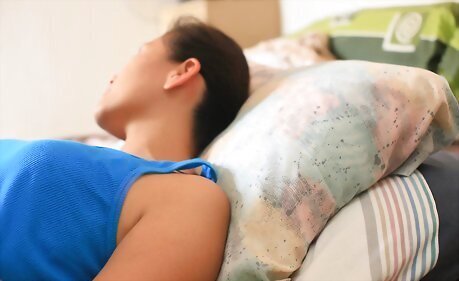
Stay with the victim. For the first twenty-four hours, stay with the victim. Do not leave them alone. Monitor their physical and cognitive function for any changes. If the victim wishes to sleep, wake the victim every quarter hour for the first 2 hours, then every half hour for the following 2 hours, then hourly. Every time you wake them, do the AVPU consciousness test as outlined above. You want to continuously monitor their cognitive and physical state in case symptoms appear later or worsen. If the victim does not respond to being woken up, treat as an unconscious patient.
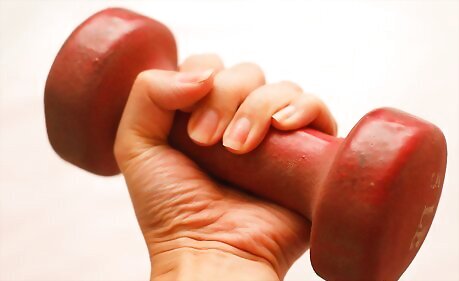
Avoid strenuous activity. For days after your concussion, avoid sports and strenuous activity. During this time, avoid stressful situations. Your brain needs to rest and heal. Before taking part in sports, you may want to contact your doctor. Returning to activity too early predisposes you to increased risk for a repeat concussion and long term problems of dementia.

Don't drive. Do not operate a vehicle or ride a bicycle until you feel fully healed. Get someone to drive you to and from the doctor's office or hospital.

Rest. Do not read, watch TV, text, listen to music, play video games, or perform any other mental task. You should rest both physically and mentally.

Eat brain-healthy foods. Food can positively and negatively affect the healing of your brain. Avoid alcohol after a concussion. Also avoid fried foods, sugars, caffeine, artificial colors and flavors. Instead, eat the following foods: Avocados. Blueberries. Coconut oil. Nuts and seeds. Salmon. Butter, cheese, and eggs. Honey. Any of your favorite fruits and vegetables. EXPERT TIP Michael Lewis, MD, MPH, MBA, FACPM, FACN Michael Lewis, MD, MPH, MBA, FACPM, FACN Board Certified Brain Health Physician Michael D. Lewis, MD, MPH, MBA, FACPM, FACN, is an expert on nutritional interventions for brain health, particularly the prevention and rehabilitation of brain injury. In 2012 upon retiring as a Colonel after 31 years in the U.S. Army, he founded the nonprofit Brain Health Education and Research Institute. He is in private practice in Potomac, Maryland, and is the author of "When Brains Collide: What every athlete and parent should know about the prevention and treatment of concussions and head injuries." He is a graduate of the U.S. Military Academy at West Point and Tulane University School of Medicine. He completed post-graduate training at Walter Reed Army Medical Center, Johns Hopkins University, and Walter Reed Army Institute of Research. Dr. Lewis is board certified and a Fellow of the American College of Preventive Medicine and American College of Nutrition. Michael Lewis, MD, MPH, MBA, FACPM, FACN Michael Lewis, MD, MPH, MBA, FACPM, FACN Board Certified Brain Health Physician Our Expert Agrees: I recommend that anyone who has an increased risk of concussion, like athletes or members of the military, take a daily fish oil supplement. Nutrition is an important part of helping increase the resilience of your brain to withstand and recover from an injury.
Treating a Severe Concussion
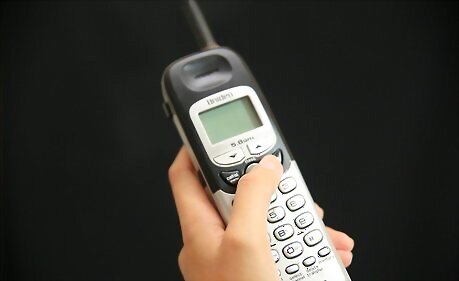
Contact a doctor. Any suspected head injury or concussion needs to be evaluated by a medical professional. What may seem like a minor head injury could be a fatal one. If the patient is experiencing some minor symptoms but does't seem to be in a great deal of danger, drive them to the nearest doctor's office. If the patient is unconscious or if you are unsure the extent of the damage, call an ambulance. Driving a head trauma patient requires moving them, which should never be done until the head is stabilized. Moving a head trauma patient could lead to death.
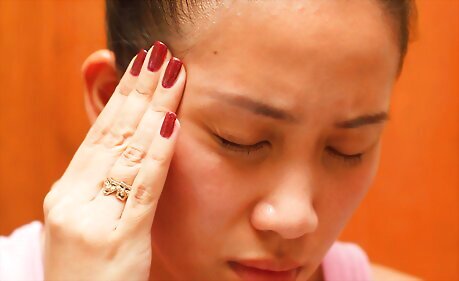
Go to the hospital. If the patient is having severe signs of a concussion after experiencing a blow the head, go to the ER immediately. They will do a CT scan and assess the brain for contusions and swelling. If the victim shows any of these symptoms, take them immediately to the ER: Loss of consciousness, even if briefly. Periods of amnesia. Feeling dazed or confused. Severe headache. Repeated vomiting. Seizure.

Stay still and avoid movement. If you think a neck or spine injury may accompany the concussion, avoid moving the victim while waiting on the paramedics. Moving the person may cause further injury. If you must move the person, do so very carefully. Make sure to move the head and the back as little as possible.
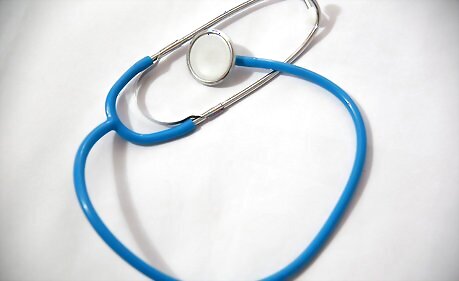
Follow up. If your symptoms do not improve within 7-10 days, contact your physician. If at any time your symptoms change or worsen, contact your physician.
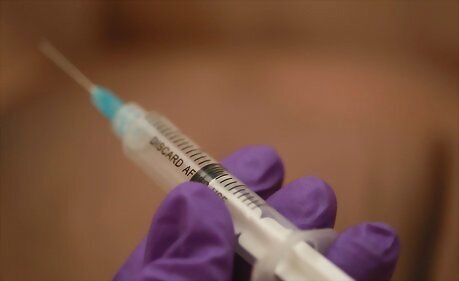
Continue treatment. There is very little known about the effects of concussion on the brain and on cognitive function. However, some treatments prescribed by your doctor may improve lingering symptoms. A doctor may perform any number of scans, including an MRI, CT, or EEG. A doctor may also perform a neurological test that evaluates your vision, hearing, reflexes, and coordination. Another test they may perform is a cognitive test, which checks memory, concentration, and recall.

















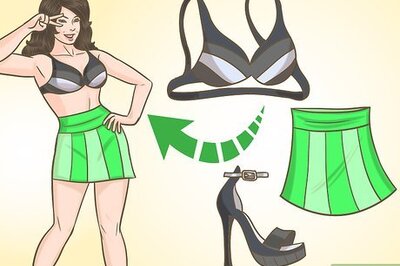
Comments
0 comment